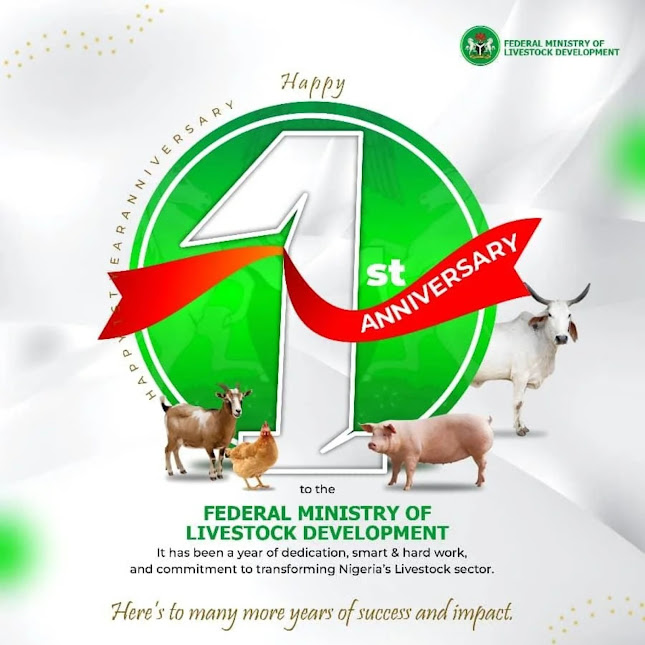One year ago, a bold vision took shape—one that set out to transform Nigeria’s struggling livestock sector into a cornerstone of food security and rural development. Today, the Federal Ministry of Livestock Development celebrates its first anniversary, reflecting on a year of groundwork, reform, and renewed hope.
 |
| Source: AgroNigeria |
Born out of necessity and shaped by ambition, the Ministry was established by President Bola Tinubu to confront the deep-rooted challenges that have long stunted the growth of Nigeria’s animal agriculture—from outdated grazing systems to underdeveloped value chains.
At the helm of this transformation is Minister Idi Mukhtar Maiha, who has spent the past twelve months spearheading initiatives that aim not just to fix a broken system, but to reimagine it. Under his leadership, the Ministry launched the National Livestock Growth Acceleration Strategy (NL-GAS), a blueprint designed to revitalize every link in the livestock value chain—from feed and fodder production to breed improvement and veterinary services.
“This is more than reform; it’s a complete reset,” said Maiha. “We are laying the foundations for a sector that empowers communities, feeds the nation, and contributes meaningfully to our economy.”
In partnership with state governments, local communities, and international agencies, the Ministry has tackled some of the sector’s most pressing issues. Mass vaccination campaigns are helping to stem the spread of deadly animal diseases, while rehabilitated grazing reserves and modern pastoral training are reducing tensions between farmers and herders—an age-old conflict with economic and social costs.
Early results are encouraging. Livestock productivity is on the rise, extension services are reaching more farmers, and a culture of innovation is beginning to take root in rural areas once left behind.
Looking forward, the Ministry is setting its sights even higher. Year two will focus on unlocking private investment in ranching and feedlots, scaling up climate-resilient fodder initiatives, and positioning Nigerian meat and dairy products for the global market.
The momentum hasn’t gone unnoticed. From the Nigerian Veterinary Medical Association to grassroots pastoralist groups, stakeholders are rallying around what many now see as a turning point for the sector.
As the Ministry steps into its second year, the message is clear: the era of neglected potential is over. With continued vision and collaboration, Nigeria’s livestock industry is not just on the mend—it’s on the move.




No comments:
Post a Comment
What's do you think about this News Story? Share your thoughts here, let's learn together...